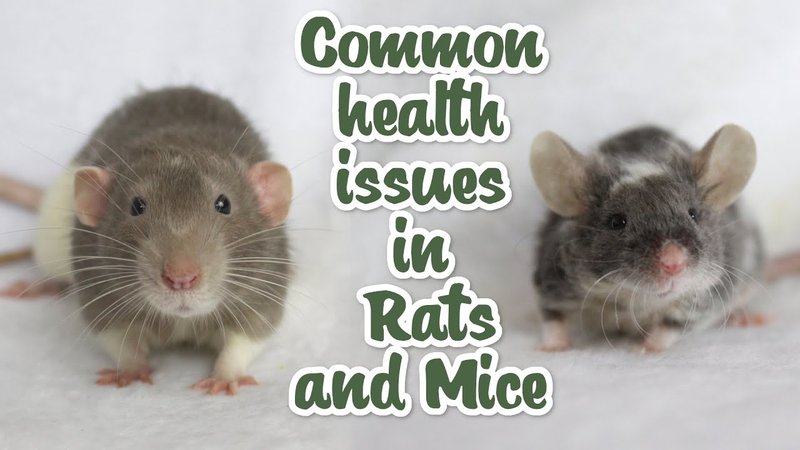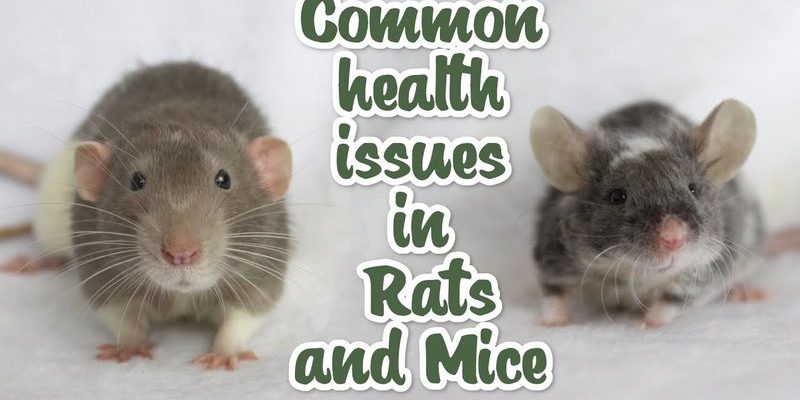
Standard rats, often referred to as *Rattus norvegicus*, can exhibit various health issues, and understanding these can help you provide the best care. From respiratory problems to tumors, knowing the signs and prevention strategies is key to keeping your furry friend happy and healthy. So, let’s dive into some common health concerns rats face and how to prevent them.
1. Respiratory Issues: A Common Concern
Respiratory problems are among the most common health issues in standard rats. You might notice symptoms like *sniffing*, *sneezing*, or *labored breathing*. Imagine catching a cold; it’s uncomfortable, and for rats, it can become serious quickly. The cause often stems from poor living conditions, such as dirty cages or exposure to irritants like dust or smoke.
The best way to prevent these issues is to maintain a clean environment. Make sure to regularly clean your rat’s cage and provide fresh bedding. Also, avoid using scented products around them. A well-ventilated area can help keep their airways clear.
Symptoms to Watch For
– Sneezing: Frequent sneezing could be a sign of respiratory infection.
– Labored Breathing: If your rat seems to struggle to breathe, it’s time for a vet visit.
– Nasal Discharge: Any runny nose or unusual discharge is a red flag.
If you notice these symptoms, don’t hesitate to consult a veterinarian who specializes in small animals. Early intervention can make a significant difference.
2. Tumors: The Hidden Threat
Tumors are another health concern that many rat owners face. Sadly, these little guys are prone to developing both benign and malignant tumors. They can appear anywhere on the body, but common spots include the abdomen and under the skin. Imagine finding a bump on your skin and wondering whether it’s serious; that’s how it feels for our furry friends as well.
Prevention isn’t foolproof, but regular check-ups with a vet can help catch any growth early. It’s also crucial to provide a balanced diet rich in nutrients, as a healthy rat is more likely to fend off potential issues, including tumors.
Identifying Tumors
– Lumps or Bumps: Any new growth should be evaluated.
– Changes in Behavior: If your rat seems lethargic or less social, it could indicate discomfort.
– Weight Loss: Unexplained weight loss can be a symptom of underlying issues, including tumors.
If you spot anything unusual, it’s best to get it checked out. Even if it’s nothing, it’s always better to be safe than sorry!
3. Dental Problems: More Than Just a Nibble
Rats’ teeth grow continuously throughout their lives, which means dental care is crucial. They naturally chew on things to wear down their teeth, but sometimes, overgrown teeth can lead to serious problems like abscesses or difficulty eating. Imagine trying to enjoy a meal with a toothache; your rat deserves better!
To keep their teeth healthy, provide plenty of chew toys and hard foods. You can offer things like raw vegetables, branches from safe trees, or even specially designed dental treats. Regularly check their teeth for overgrowth and consult your vet if you notice any suspicious changes.
Signs of Dental Issues
– Difficulty Eating: If they struggle with food, their teeth might be too long.
– Drooling: Excessive drooling can indicate dental pain.
– Changes in Behavior: A rat with tooth pain might become more withdrawn.
Regular dental checks can help ensure that your rat’s smile stays bright and healthy!
4. Parasites: The Uninvited Guests
Parasites like mites and fleas can be a nuisance for your pet rat. These tiny invaders can cause itching, hair loss, and even more severe health problems if left untreated. It’s like having unwelcome house guests that refuse to leave; no one wants that!
To keep your rat parasite-free, make sure to clean their cage thoroughly and regularly. You can also check for signs of parasites, like scratching or changes in behavior. If you suspect your rat has a parasite problem, visit your vet for advice on treatments and prevention methods.
How to Spot Parasites
– Scratching or Grooming Excessively: If your rat seems to be scratching more than usual, they might have mites or fleas.
– Hair Loss: Patches of hair missing can indicate a parasitic issue.
– Skin Irritation: Red or inflamed skin is a sign of something wrong.
Regular grooming can help you spot these issues before they become a bigger problem!
5. Obesity: A Growing Concern
Just like with humans, obesity can be a significant health issue for rats. It can lead to various complications, including diabetes and heart disease. You might think of it like a lifestyle choice; making sure your rat gets enough exercise and a balanced diet can help keep their weight in check.
Offer a varied diet with fresh fruits, vegetables, and high-quality pellets. Encourage playtime outside their cage with toys or tunnels. This not only helps them stay active but also strengthens your bond.
Tips for Weight Management
– Balance Their Diet: Ensure they’re not just eating treats; nutrition matters!
– Encourage Exercise: Provide space and toys for your rat to explore and play.
– Regular Weigh-Ins: Keeping track of weight can help you catch issues early.
Being proactive about your rat’s diet and exercise can help them live longer, healthier lives.
6. Regular Vet Check-Ups: Your Best Tool
Perhaps the most crucial tip in preventing health issues is to schedule regular vet visits. Just like we go for check-ups to catch problems early, your rat deserves the same. A vet can provide vaccinations, dental checks, and advice tailored to your pet’s needs.
Don’t wait until there’s a problem; make vet visits part of your routine. This way, you can ensure your furry friend stays happy and healthy for years to come.
What to Expect at a Vet Visit
– Physical Examination: The vet will check for any visible signs of health issues.
– Weight Check: Keeping track of your rat’s weight is essential.
– Questions: Be prepared to discuss your rat’s diet, behavior, and living conditions.
Building a relationship with a vet who understands small animals can give you greater peace of mind.
Caring for a standard rat means being aware of the various health concerns they face. From respiratory issues to dental problems, knowing how to spot these issues early can help you provide the best care possible. By maintaining a clean environment, offering a balanced diet, and scheduling regular vet check-ups, you’ll be setting your furry friend up for success.
Just like that, you’ve got the tools to be the best rat parent ever. Remember, the joy these little creatures bring is worth every effort you put into keeping them healthy. Now go give your rat a little extra cuddle—they deserve it!

